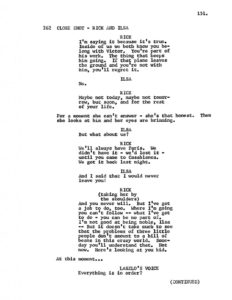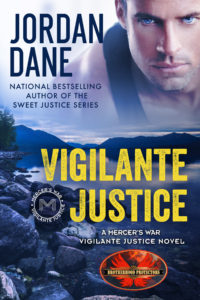It’s been a strange week. Whenever I get toward the end of a project, I sabotage my progress by finding distractions (or I let them take over “There, I said it.”). I honestly don’t want my story to be over. I’m madly in love with my latest protagonist, Braxton Valentine. Valentine: Steel Heart will be launched Oct 31 as part of a new Amazon Kindle World – Desiree Holt’s The Phoenix Agency. This will be book 1 of 2, with the second installment coming in Feb 2018. I don’t have to say good-bye to my brooding hero, but that doesn’t make it easy to finish book 1.
I wanted to have a free schedule for the holidays, not like last year where I wrote like a mad woman for a January release. Never, never, never again. That’s the goal, but in the midst of my mounting common sense comes my new website design.
Distraction #1 – I asked my designer, Maddee at Xuni, to create a WordPress site I can maintain by myself to keep the cost down on monthly tweaking and all the new releases. I’ll be launching it soon, but I had to teach myself much more than I ever thought I would know about WordPress (WP). Like a petulant child, I kicked and wailed against doing it NOW, but I eventually broke down WHILE I WAS FINISHING Valentine’s story. After I sunk my teeth into my learning curve, I found I really enjoyed getting to know more about WP & I’m thrilled that I will finally have control over my site. I still plan on using Xuni for some administrative functions. I can’t totally quit Maddee and need my fix, but it was satisfying to learn something new and gain control at the same time.
Distraction #2 – Since I saw the end of my project in sight (we’re talking final chapter, big finish, folks), I decided to make contact with a local writers group and attend one of their critique sessions. I enjoy giving back to the writing community, as other authors have done for me, and I also get a lot out of reviewing and giving feedback to others. The meeting was held at a good restaurant I like, double score, and I met new people, trifecta. But after lunch we began the critique process (which hasn’t changed in YEARS), which is to read 10 pages aloud (cold) and provide feedback. Instead of hearing submissions of fiction, I heard only one memoir and one screenplay/script before I had to cut out. In the past, this group has also had quite a number of poets. Not one fiction read. I have to say I was a little disappointed, except that I wanted to make the most of it and focus on how screenplays can still evoke emotion with good dialogue and setting.
The next day I researched script writing and read examples of famous scenes from well-known movies that were packed with very emotional content. It inspired me to double my efforts to put the right dialogue into every scene and fill it with emotion. The setting can still be sparse (especially when I am writing shorter Amazon Kindle Worlds these last few months), but the dialogue needs meat and heft. The film-goer or the reader MUST be gripped by your stripped down version of a story and their minds fill in the gaps to paint a picture in their minds that can be rich and satisfying.
Have any of you thought about script writing?
A rule of thumb – one page of a script is equivalent to one-minute of film/TV. So if you can write an approx. 50-70 pgs for episodic TV or 80-120 pgs for feature film—with good and effective story structure, packed with emotion and good dialogue—you have the bare bones to a solid novel. I’ve heard of some authors who start out by writing in a script fashion before they fill out their story into fiction. Could this be the new outline?
Here’s a page from CASA BLANCA – We’ve all seen this scene.
I’m not proposing that I divert all my attention to learning script-writing, but this method isn’t that far off from where I taught myself to write a tight scene with a focus on dialogue. To get a jump on my writing after work, I would take a notepad to lunch and write only dialogue lines that I heard in my head (yes, I had a lot of folks staring at me). With those lines as a framework, I would fill out the other elements later (setting, body language, action, introspection). The brain is an amazing team player. While you are doing other things, it is still working on your story or your research. If you’ve ever read a full script, you know how the brain fills in the gaps and makes you see a movie rolling in front of your mind’s eye.
So my “fiction group” diversion lit a fire under me. I suppose inspiration can come at you fast.
Even the Memoir writer in the critique group got me to shred through the words that readers will skim (as Elmore Leonard said) to realize that even your own memoir needs emotion and a point. Unless you are famous, who is your target market? If you’re a survivor of an ordeal, you can share your journey and be inspirational, but your average person who only wants to chronicle their life will have a “story” with no end (yet) and a ramble of back story and mental musings without a point. My dad’s memoir is a case in point. It shall never see light of day because he can’t stop editing it—which is a good thing because he’s still here to wordsmith it.
For Discussion:
1.) What diversions have paid off for you as a writer?
2.) Have you ever considered writing a script for your book – or started with a script and fleshed it out into a novel?
3.) How many of you maintain your own website? Do you enjoy WordPress?
VIGILANTE JUSTICE (Mercer’s War – Book 3) – $1.99 Ebook
In Montana, when a disturbing pattern of missing teens and college students falls under the FBI’s radar, former CIA operative Mercer Broderick fears the violent abductions are at the heart of a dark web of conspiracy that must be stopped and Brotherhood Protectors won’t be denied from the fight.




